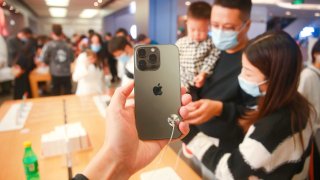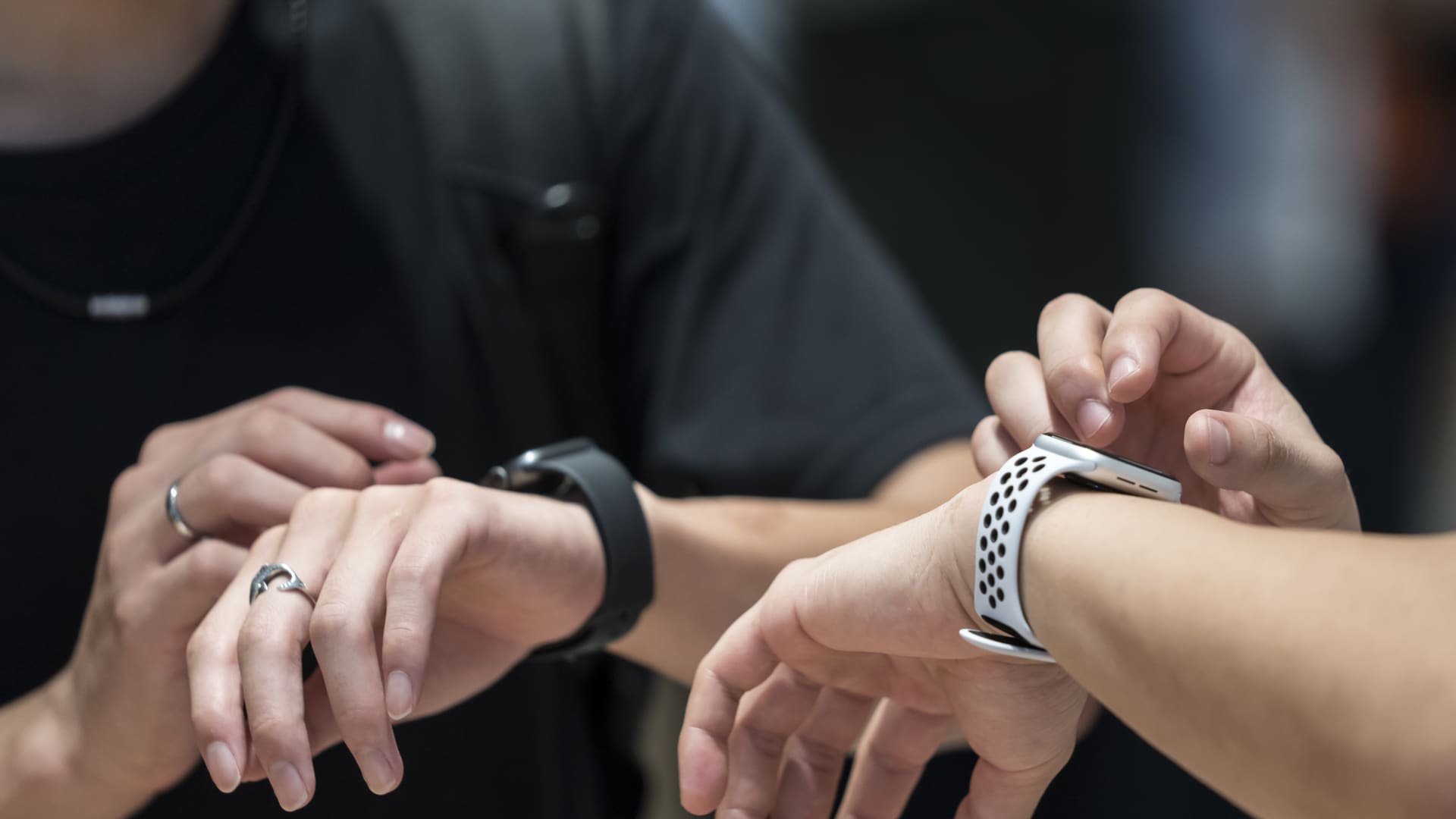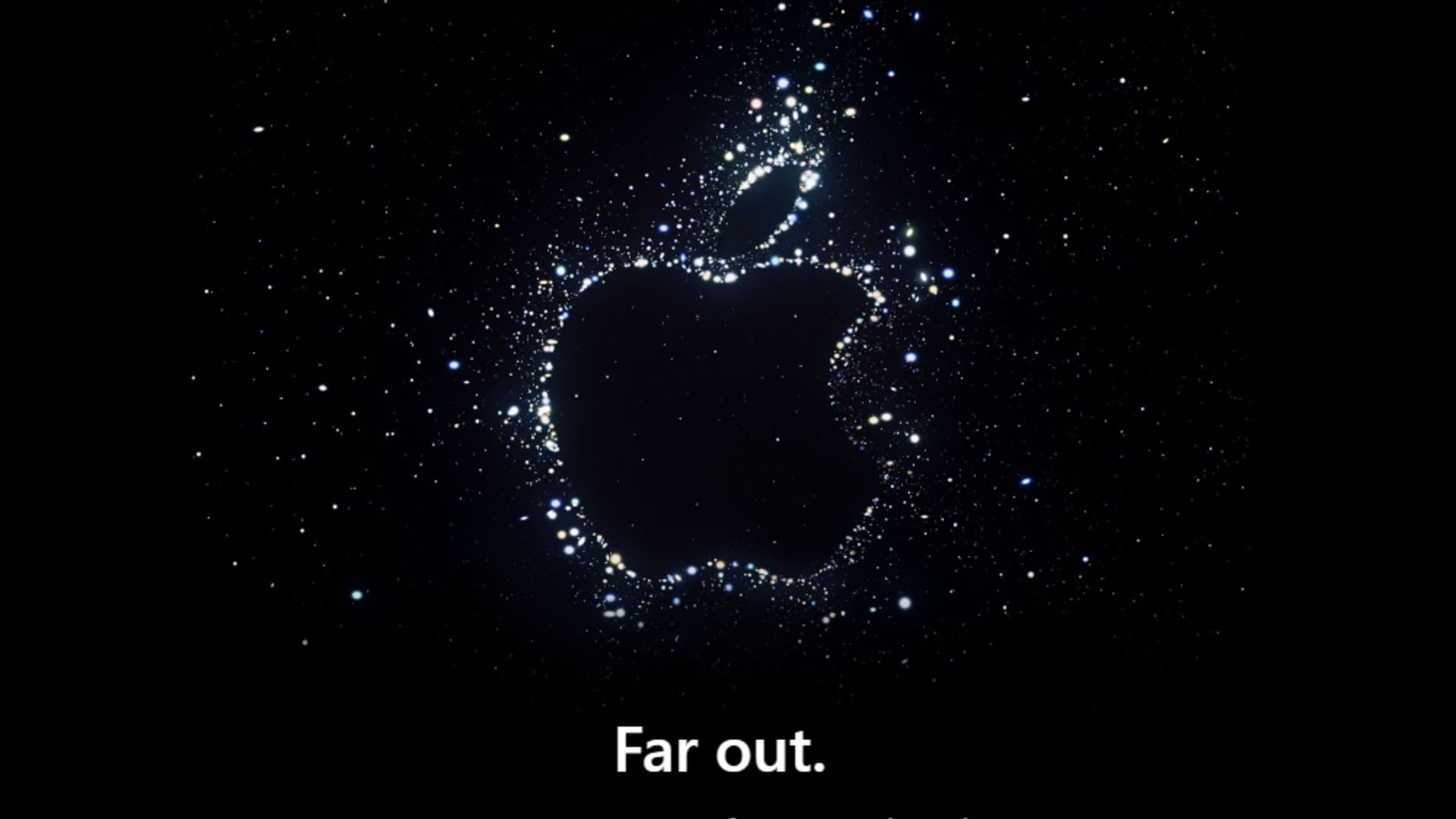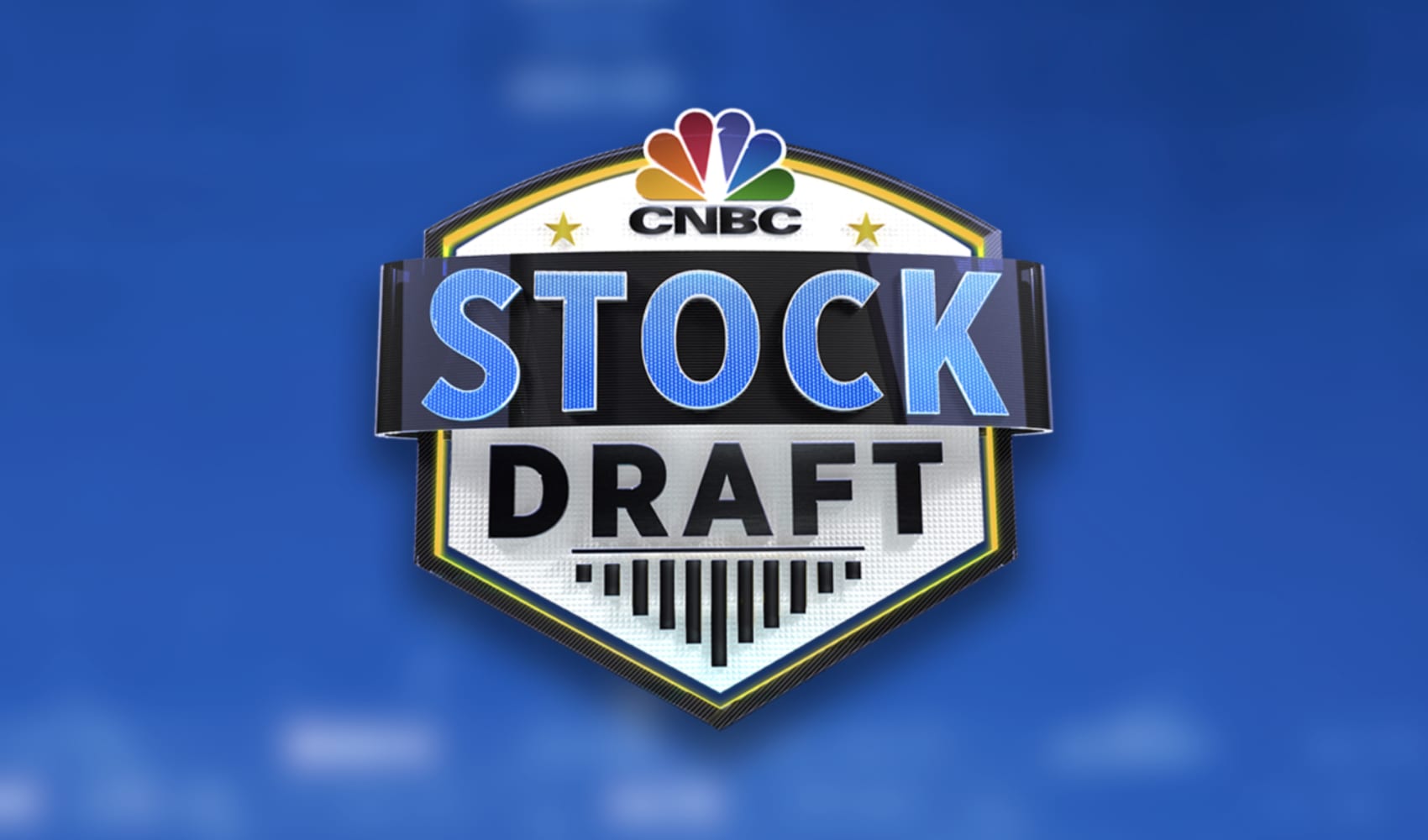
Apple is holding a launch event at its headquarters in Cupertino, California, on Wednesday where it will unveil its latest hardware products, including the new iPhone 14.
Apple has used prerecorded videos for its launch events since early 2020 thanks partly to Covid restrictions, and this will be the first iPhone launch with an in-person component since 2019. Apple is streaming the launch event online on its website and YouTube in addition to inviting some media to its campus.
Apple's hype-filled fall launches are a signature event for the company. They typically draw millions of simultaneous viewers on YouTube. They garner attention from around the world and set the stage for a holiday marketing blitz during the last three months of the year, which is when Apple's sales are the highest.
Get Tri-state area news and weather forecasts to your inbox. Sign up for NBC New York newsletters.
This year's event has the tagline "far out," which could refer to features such as night-sky photography.
Last year, Apple released new iPhones and Apple Watches at an event in September, and then followed it up with an October launch featuring iPads and Macs.
Here's what Apple is likely to launch Wednesday, based on reports.
Money Report
iPhone 14: Four new models
Apple is expected to release four new iPhone models. If Apple's current naming convention holds up, they will be called the iPhone 14.
This year Apple will likely discontinue the "mini" model with a 4.7-inch screen, according to reports. Instead, Apple could offer two sizes, one with a 6.1-inch screen and one with a 6.7-inch screen, each coming in a standard model and a pricier "Pro" model.
The Pro models are expected to get more upgrades, according to reports from Bloomberg News, TFI Securities analyst Ming-Chi Kuo, and other analysts and Apple watchers.
Since 2017, iPhones have included a space at the top of the phone's display with space for Apple's FaceID system, which includes several sensors and a camera. The Pro models could ditch Apple's "notch" where it houses the FaceID camera for a slimmer, more streamlined "pill" or "cutout" approach with a smaller space that has to remain blank, leaving room for an even larger display.
The Pro models are also expected to get upgraded A16 processors and cameras. The camera bump is expected to get larger.
Apple could release an always-on screen display for showing notifications, like some Android phones have sported for years. Beta iPhone software released over the summer suggested that Apple may be planning a similar feature because of new widgets that show weather and battery life.
One of the biggest questions is how Apple will price its iPhones in a period of inflation around the world and macroeconomic uncertainty in some regions. Other consumer electronics, such as Sony's Playstation 5, have seen price cuts.
Apple's least-expensive iPhone 13 model is the $699 iPhone 13 Mini, which is expected to be discontinued. That would make Apple's mainline device, which is currently the iPhone 13, the least-expensive new model at $829, if its price doesn't change. Some analysts also expect Apple to increase the price of its Pro models.
Apple usually drops the price of older models when it releases new ones, giving more price-sensitive consumers an option.
Apple Watch

Apple is likely to show the eighth major new version of its watch on Wednesday. Last year, the Apple Watch Series 7 got a slightly larger screen, but the redesign did not significantly change the look and feel of the device, which has remained mostly the same since 2014.
Expect more evolution this year, too. Apple is considering a body temperature sensor in the new devices, according to the Wall Street Journal, which could help with fertility and sleep tracking. Other sleep tracking features could include the ability to detect advanced sleep patterns or apnea.
But the biggest Apple Watch Series 8 announcement could be a new "Pro" model with a bigger screen and more durable finish. Apple has previously released Apple Watches with pricey case materials such as gold, ceramic and titanium, and the new "Pro" model described by Bloomberg and Kuo could be one of the first high-end Apple Watches to gain additional features over its less-expensive siblings.
Also likely: A new updated version of the Apple Watch SE, its $329 entry-level Watch model.
iOS 16

IPhone owners who don't plan to buy any new gear this fall will still get an annual update to the iPhones software, iOS 16, which was announced in June and has been in testing over the summer.
The software has several new features that users will immediately notice. The biggest banner feature is the ability to customize the iPhone's lock screen with widgets that can display weather forecasts, calendar appointments and other information at a glance. Users can also change the font for the lock screen clock for the first time, as well.
IOS 16 also lets you unsend or edit iMessage text messages, as long as you catch them within a few minutes of sending.
IOS 16 will also introduce short-term loans from Apple called Apple Pay Later. The feature will allow users to buy stuff online with Apple Pay but pay for the item in four installments without paying interest.
One cool feature in iOS 16 is if a user has both an iPhone and a Mac laptop or desktop, they can use the iPhone as a very high-definition web camera.
After the event: iPads, Macs

Apple is unlikely to release new iPads on Wednesday because their software isn't ready yet. Earlier this month, Apple told TechCrunch that iPadOS, the iPad software, will ship after iOS this fall, suggesting a staggered release.
Apple's statement was terse, and the company dislikes talking about unannounced products. But in general, it likes to release new hardware together with new software, so the statement clearly suggested that new iPads would come at a later launch date than iPhones.
IPadOS and iOS are very similar, but this year iPadOS is getting a feature called Stage Manager that could allow users to multitask more efficiently — but also got panned by early testers. Improved iPads could include more powerful processors that are closers to laptop processors, smoother displays and better integration with accessories.
Apple also uncharacteristically teased a new "Mac Pro" in the spring. The Mac Pro is currently a $5,000 tower of power using an Intel processor.
Apple wants to transition its entire Mac lineup away from Intel to its own M-series processors, but a pricey niche product doesn't fit as well with Apple's mass-market iPhones and Apple Watches. Instead, new Macs could be announced at a separate event later this year, as happened last year.






